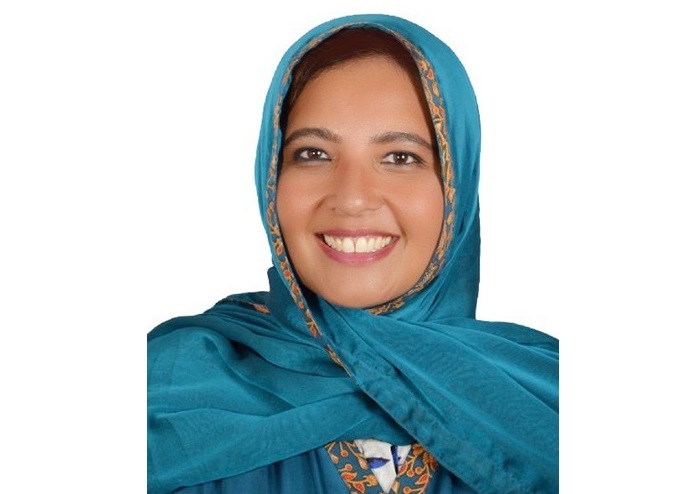Dr. Khulood Rambo

Biography:
Dr. Khulood Rambo, a member of the British Computer Society, is an Assistant Professor of Information Systems in the College of Engineering at Effat University in Jeddah, Saudi Arabia.
Dr. Rambo earned her PhD in Informatics from the University of Reading in Reading, UK. Whilst pursuing her postgraduate studies in the UK, she taught both graduate and undergraduate level courses in applied informatics, business information systems, computing, and games design and development at the University of Reading, Reading College, and the London Institute for Science and Technology.
Dr. Rambo has a number of publications related to her doctoral research. Her thesis is titled: “The Semiotics of Islamic Online Consumption: Interpreting Female Consumers’ Shopping and Social Networking Behavior in Saudi Arabia.” Her research interests have an interdisciplinary nature; they span from the interaction between people and technology, requirements studies, organizational semiotics, applied and social informatics, human factors, and digital humanities. Currently, she is engaged in researching the future plan for power plants technologies in Saudi Arabia.
Dr. Rambo earned her MSc in Information Systems Management at the School of Computing and Mathematical Sciences, University of Greenwich, London, UK. She had earned her BSc in Computer Science at King Abdul-Aziz University, Jeddah, Saudi Arabia.
MIT Fellowship Research Abstract:
Shaping the Future of Energy – Water Nexus in Saudi Arabia
Energy – water nexus is a concept that perceives both systems of energy and water as being connected and coevolved. Energy is an essential requirement for water treatment and supply, and water is equally a necessary ingredient to complete most, if not all, processes of energy production.
In this day and age, significant factors are leading the world to become in desperate need of both commodities. Among these factors are the expected population growth around the world as well as climate change with its extreme weather conditions. Thus, the connection between both systems is believed to be growing in importance in the coming years. More specifically, the world is in pressing need for a robust future planning and strategic policy considerations in developing sustainable connection between both systems.
Saudi Arabia, with a population reaching 30 million, is the third-largest per capita water user in the world. It is also the largest country in the world with no lakes and/or rivers. It draws its water supply primarily from desalination and (fossil) ground water aquifers. Moreover, in spite of the fact that Saudi Arabia is one of the largest producers of natural gas and petroleum liquids worldwide, it is unsurprising that it has a highly energy and carbon intensive economy.
This research focuses on understanding and evaluating the current electricity production technologies, planning and proposing efficient electricity production technologies for future use and estimating electricity needs versus water needs in Saudi Arabia. It will offer a new framework to estimate water use in energy production. This will be achieved by using a simple and generic model for evaluating water requirements of different types of energy production channels in Saudi Arabia. This model is also believed to be highly beneficial in policy analysis and policy decision making processes.
Fellowship Sponsored By:
Saudi Aramco